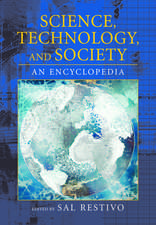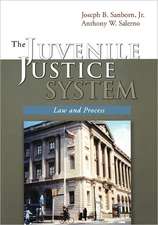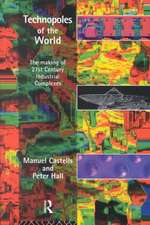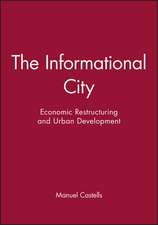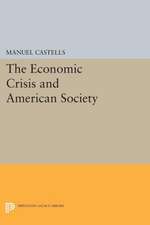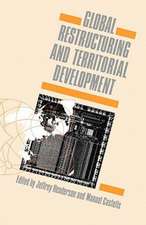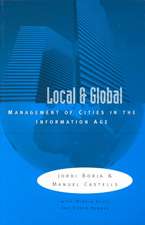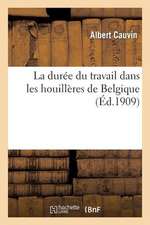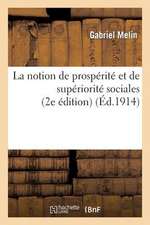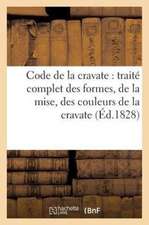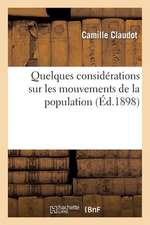Communication Power
Autor Manuel Castellsen Limba Engleză Paperback – 29 aug 2013
| Toate formatele și edițiile | Preț | Express |
|---|---|---|
| Paperback (2) | 112.73 lei 10-16 zile | |
| Oxford University Press – 30 mar 2011 | 112.73 lei 10-16 zile | |
| Oxford University Press – 29 aug 2013 | 145.61 lei 31-37 zile | |
| Hardback (1) | 368.89 lei 31-37 zile | |
| OUP OXFORD – 9 iul 2009 | 368.89 lei 31-37 zile |
Preț: 145.61 lei
Preț vechi: 160.47 lei
-9% Nou
Puncte Express: 218
Preț estimativ în valută:
27.87€ • 30.26$ • 23.41£
27.87€ • 30.26$ • 23.41£
Carte tipărită la comandă
Livrare economică 12-18 aprilie
Preluare comenzi: 021 569.72.76
Specificații
ISBN-13: 9780199681938
ISBN-10: 0199681937
Pagini: 624
Ilustrații: Illustrations
Dimensiuni: 164 x 234 x 32 mm
Greutate: 0.93 kg
Ediția:2nd edition.
Editura: Oxford University Press
Colecția OUP Oxford
Locul publicării:Oxford, United Kingdom
ISBN-10: 0199681937
Pagini: 624
Ilustrații: Illustrations
Dimensiuni: 164 x 234 x 32 mm
Greutate: 0.93 kg
Ediția:2nd edition.
Editura: Oxford University Press
Colecția OUP Oxford
Locul publicării:Oxford, United Kingdom
Recenzii
Review from previous edition Manuel Castells has shaped himself into the most prominent and influential theorist and analyst of the modern communications and network age. He is the Marshall McLuhan of our time.
a challenging and intriguing work [in its] ambitions, scope and concepts.
A sustained inquiry into the nature of political and economic power in the modern world.
Castells has done it again, a masterpiece of global perspective and enviable erudition. Moving beyond his trilogy on the information age, Castells focuses on how cultural, economic and particularly political power relationships are constituted and sustained through systematic communication flows. A new line of analysis draws on neuroscience and cognitive psychology to track the role of emotion in political communication. Case studies include global media deregulation, the politics of scandal, framing the war in Iraq, ecological social movements, the Obama presidential candidacy and a fascinating comparison of media control dynamics in Russia and China.
How could Manuel Castells have predicted that now is the time of the perfect storm? I do not know. But I do know that his new book coincides with the largest downturn in global economies since the 1930s, with the most important American election since the 1960s, with a most radical transformation of world politics in many generations, and with the most profound reevaluation of the lives of modern citizens, from what they value to how they communicate. We have become used to Castells' careful scholarship and penetrating analyses but in this new book he cuts deeper into the heart of the matter. Sometimes he provides illuminating answers and where he cannot, he frames the questions that must be answered. This is a powerful and much needed book for a world in crisis.
Manuel Castells unites the mind of a social scientist with the soul of an artist. His trilogy took us to the edge of the millennium. This book takes us beyond to the critical crossroads of the 21st century, where technology, communication, and power converge.
In this timely book, Professor Castells turns his attention from the impact of the internet on the economy to its impact on communications and politics. I can warmly recommend it to all communications practitioners. But his clear analysis and vivid case studies make this book of interest to anyone who wants to understand the nature of power in today's democracy and the meaning of the campaign that swept Barack Obama into the White House.
a challenging and intriguing work [in its] ambitions, scope and concepts.
A sustained inquiry into the nature of political and economic power in the modern world.
Castells has done it again, a masterpiece of global perspective and enviable erudition. Moving beyond his trilogy on the information age, Castells focuses on how cultural, economic and particularly political power relationships are constituted and sustained through systematic communication flows. A new line of analysis draws on neuroscience and cognitive psychology to track the role of emotion in political communication. Case studies include global media deregulation, the politics of scandal, framing the war in Iraq, ecological social movements, the Obama presidential candidacy and a fascinating comparison of media control dynamics in Russia and China.
How could Manuel Castells have predicted that now is the time of the perfect storm? I do not know. But I do know that his new book coincides with the largest downturn in global economies since the 1930s, with the most important American election since the 1960s, with a most radical transformation of world politics in many generations, and with the most profound reevaluation of the lives of modern citizens, from what they value to how they communicate. We have become used to Castells' careful scholarship and penetrating analyses but in this new book he cuts deeper into the heart of the matter. Sometimes he provides illuminating answers and where he cannot, he frames the questions that must be answered. This is a powerful and much needed book for a world in crisis.
Manuel Castells unites the mind of a social scientist with the soul of an artist. His trilogy took us to the edge of the millennium. This book takes us beyond to the critical crossroads of the 21st century, where technology, communication, and power converge.
In this timely book, Professor Castells turns his attention from the impact of the internet on the economy to its impact on communications and politics. I can warmly recommend it to all communications practitioners. But his clear analysis and vivid case studies make this book of interest to anyone who wants to understand the nature of power in today's democracy and the meaning of the campaign that swept Barack Obama into the White House.
Notă biografică
Manuel Castells is University Professor and the Wallis Annenberg Chair of Communication Technology and Society at the University of Southern California. He is also Professor Emeritus of Sociology and Planning, University of California, Berkeley, where he taught for 24 years. He is a Fellow of the American Academy of Political and Social Science, of the Academia Europaea, of the Spanish Royal Academy of Economics, and of the British Academy. His main books include the trilogy The Information Age: Economy, Society, and Culture (Blackwell, 1996-2003), Communication Power (OUP, 2009), and Networks of Outrage and Hope (Polity, 2012). He was a founding member of the board of the European Research Council and is a member of the Governing Board of the European Institute of Innovation and Technology.




